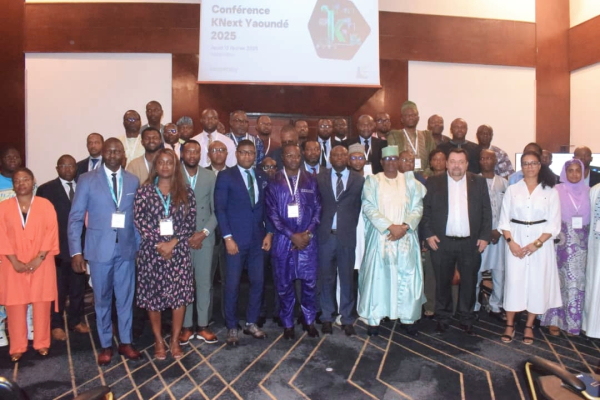Cybercrime is rapidly increasing across Africa, with a surge in attacks that exploit security vulnerabilities. Weak infrastructure protection, a lack of public awareness, and outdated software are leaving countries vulnerable to cyber threats, endangering businesses and institutions.
Cyberattacks exploiting security vulnerabilities, or "exploits," nearly doubled in Cameroon over the past year, rising from 174,472 in 2023 to 333,930 in 2024, a 91% increase. These vulnerabilities allow hackers to infiltrate systems through outdated or poorly secured software, threatening critical digital infrastructures. Cybersecurity firm Kaspersky revealed the figures at the KNext forum, held in Douala and Yaoundé on February 12 and 13.
"Faced with a growing cyber threat, Cameroonian businesses and institutions must take a proactive approach to cybersecurity. The commitment of the Ministry of Posts and Telecommunications to KNext Yaoundé 2025 sends a strong signal on the need for collective mobilization against cyberattacks," said Gladys Salmouth, Corporate Communications Manager for Central and West Africa at Kaspersky.
The surge in attacks is largely driven by Cameroon’s ongoing digital transformation. With over 10 million internet users and an estimated internet penetration rate of 45% in 2024, the rapid adoption of online services, cloud computing, and remote work, along with the rise in digital transactions, has significantly expanded the attack surface for cybercriminals.
Beyond exploits, other threats are also gaining ground. Intrusions via the Remote Desktop Protocol (RDP) reached 163,298 cases in 2024, while backdoor attacks accounted for 139,395 incidents. These methods enable cybercriminals to stealthily access systems, steal sensitive data, or deploy ransomware, disrupting businesses and government operations.
The economic consequences of these attacks are substantial. In 2024, cyberattacks cost Cameroon millions of dollars due to data breaches, service disruptions, and ransom payments. Beyond financial losses, companies and institutions also suffer reputational damage and an erosion of trust, key elements for the growth of the country's digital economy.
The threat extends beyond Cameroon. Across Africa, cyberattacks pose a major challenge to local economies. According to the United Nations Economic Commission for Africa, inadequate cybersecurity preparedness costs African nations an average of 10% of their GDP, amounting to nearly $4 billion annually.
To counter these growing threats, Kaspersky urges businesses and institutions to strengthen their cybersecurity posture. Key recommendations include adopting advanced security solutions capable of detecting and blocking threats in real time, securing remote access by restricting unprotected RDP connections, and implementing strict access and data management policies.
Raising employee awareness and providing training on cyber risks, particularly phishing and social engineering attacks, are also essential. Finally, enhanced collaboration between the private sector and government authorities remains a priority. Sharing best practices and reinforcing cooperation among key stakeholders can improve threat detection and response, contributing to a more secure digital environment.
By Samira Njoya,
Editing by Sèna D. B. de Sodji



















